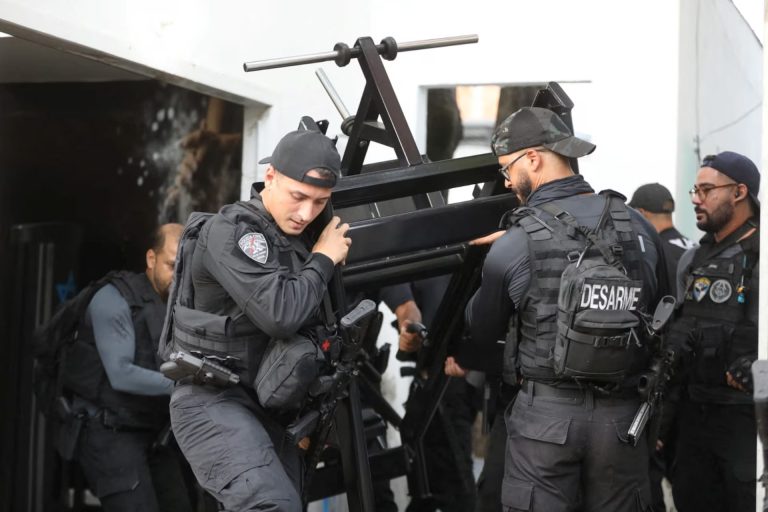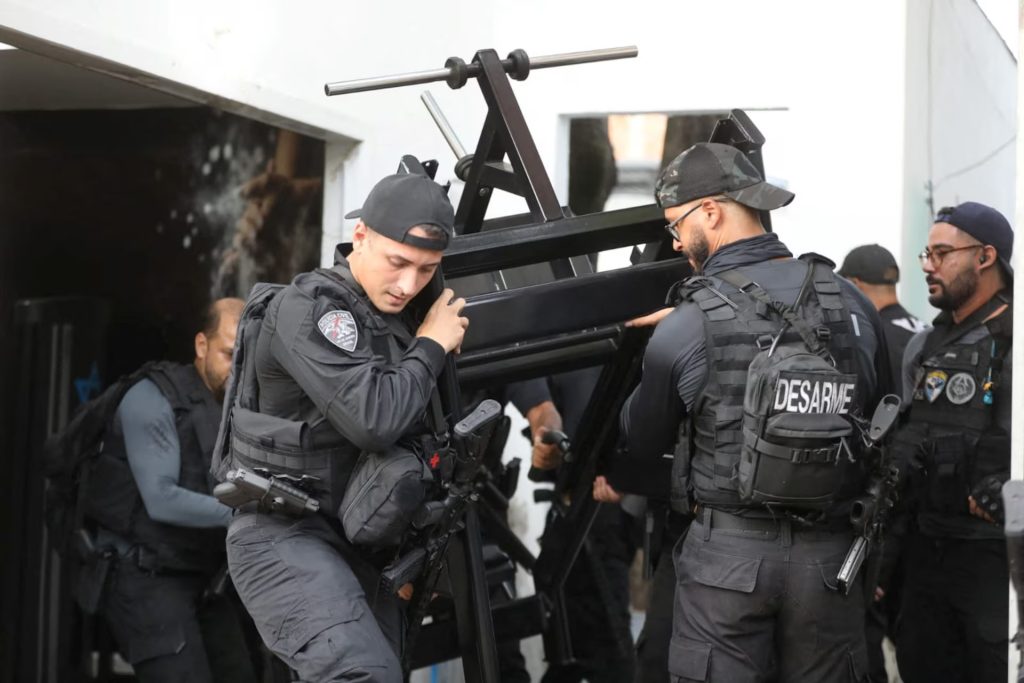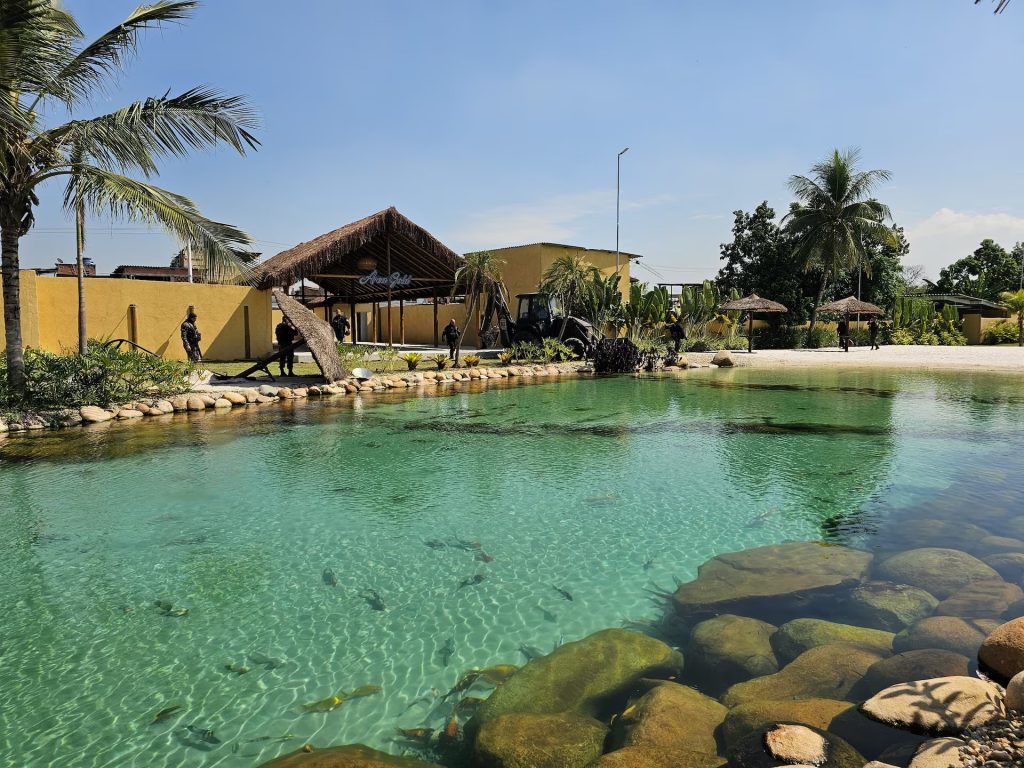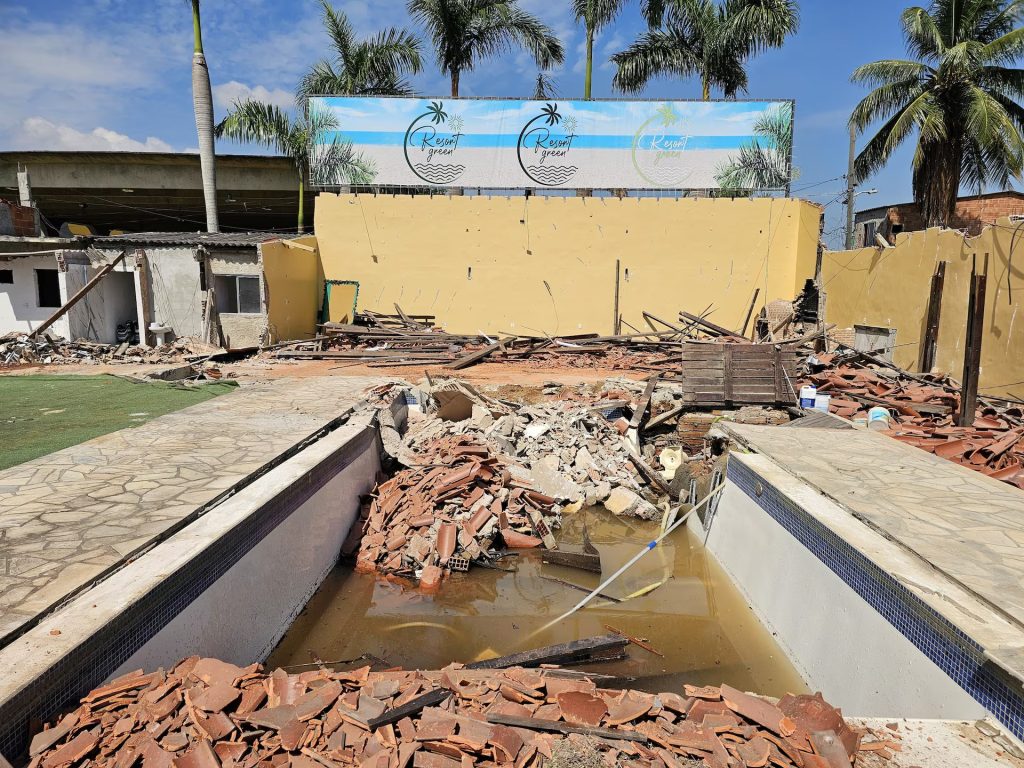On March 11, 2025, Rio de Janeiro police demolished a luxurious facility in the Complexo de Israel favela, which they labeled a “drug trafficking resort.” This operation sheds light on several intersecting issues: the audacity of organized crime, the state’s response, and the broader socio-political context in Brazil as of early 2025. Let’s break it down.
The “resort” itself was a lavish setup—featuring an artificial lake, swimming pool, gym, barbecue area, and leisure spaces—built by Álvaro Malaquias Santa Rosa, alias “Peixão,” a high-profile drug trafficker and leader of the Terceiro Comando Puro (TCP). Located in a favela, a low-income urban area often neglected by formal governance, this structure wasn’t just a hideout; it was a bold statement of power and impunity. Peixão, one of Rio’s most wanted criminals, used it as a meeting hub for his operations, showcasing how deeply entrenched and confident drug networks have become in these spaces. The fact that such a facility could be constructed in the first place points to a significant governance vacuum—favelas like Complexo de Israel are historically underserved, leaving room for criminal organizations to fill the void with their own systems of control.
The police operation was decisive: they moved in early on March 11, faced gunfire from suspects, demolished the site, arrested three individuals, and issued warrants for others in Peixão’s network. Peixão himself remains at large, which underscores a key limitation—while the state can destroy physical assets, nabbing the top figures is trickier. The closure of Avenida Brasil, a major expressway, and the suspension of nearby transit during the raid highlight the operation’s scale and its ripple effects on daily life, signaling both the seriousness of the threat and the disruption caused by the response.
This event fits into a larger pattern of Brazil’s ongoing war on drug trafficking, a conflict that’s raged since the 1980s when the cocaine trade surged. Favelas have long been battlegrounds, caught between traffickers, police, and paramilitary militias. Past efforts, like the Pacifying Police Units (UPP) launched before the 2014 World Cup and 2016 Olympics, aimed to reclaim these areas but often faltered—traffickers adapted, militias grew, and violence persisted. The demolition of Peixão’s resort echoes these high-profile interventions: it’s a symbolic win for the state, yet it’s unclear if it’ll shift the deeper power dynamics. Critics might argue it’s theater—destroying a flashy target looks good but doesn’t dismantle the TCP’s broader network or address why favelas remain fertile ground for crime.
https://x.com/rjfavelanoticia/status/1899609836800581841?s=61
Contextually, this happens under a Brazilian government that, as of March 2025, still leans on hardline security policies championed by figures like Jair Bolsonaro, who left office in 2022 but whose influence lingers. Rio’s governor, Cláudio Castro, has pushed aggressive policing despite a 2020 Supreme Court order to limit favela raids during the COVID-19 pandemic—an order often ignored. The operation aligns with this tough-on-crime stance, but it also raises questions about collateral damage. Residents likely faced chaos during the raid, and while the police statement didn’t report civilian casualties, past operations (like the 2021 Jacarezinho raid that killed 28) suggest these actions can turn deadly for bystanders.
Socioeconomically, the “resort” highlights a stark irony: a drug lord builds luxury in a place where most lack basics like sanitation or jobs. It’s a twisted mirror of Brazil’s inequality—Peixão’s wealth came from exploiting the same community he dominated. The state’s response, while forceful, doesn’t touch the root causes: poverty, exclusion, and a drug trade fueled by global demand. Demolishing the site might disrupt TCP temporarily, but without addressing these drivers, another “Peixão” will likely rise.
In short, this was a flashy crackdown on a flashy target. It shows the state flexing muscle against a brazen criminal display, but it’s a skirmish in a much bigger, messier fight. The real test isn’t the demolition—it’s whether Rio’s police and government can outlast the resilience of groups like TCP and offer favelas something beyond bulldozers and warrants. History says don’t hold your breath.
hotspotorlando News
photos by Reuters





